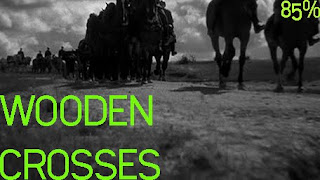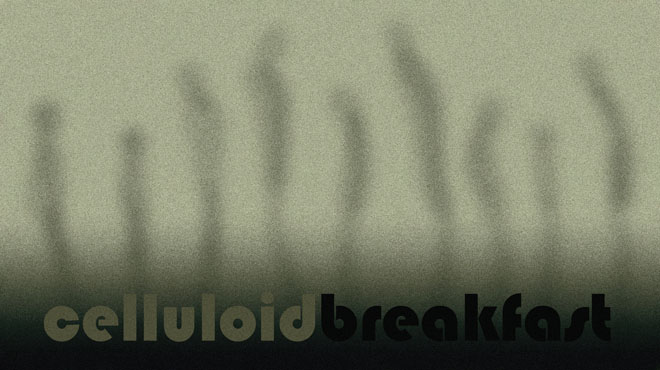Opening with a series of haunting shots depicting a war cemetery, Wooden Crosses tells of the companionship and solidarity within a French battalion in the First World War, and the hardships they endure. The men bond on their experiences with women, the wives they’ve left behind, the women they dream of being with. When orders call them up to the front line in Champagne, no amount of masculine swagger can prepare them for the horrors of war.
Although the core themes had already been dealt with by earlier films such as Lewis Milestone’s All Quiet On The Western Front, Wooden Crosses’ blunt and realistic portrayal of war still has the capacity to shock. Director Raymond Bernard creates and destroys his characters by denying them the heroism they yearn. The casual plucky aphorism is exchanged (“What does ‘equality’ mean, Sulphart?” “It means you can tell anyone to go to hell!”), but the men suddenly realise their vulnerability when on the battlefield. There are slight flashes of staginess, but the photography in general is outstanding, and the belligerent soundscape matches the tone of the image perfectly, an impressive achievement for a film made just five years after the dawn of sound. One criticism would be that the artillery is left to do the talking for a little too long. It’s powerful and effective, but the characters seem distractingly unemotional as a consequence. Nonetheless, the film fully deserves to be up there with the likes of Paths of Glory and Come And See.






No comments:
Post a Comment